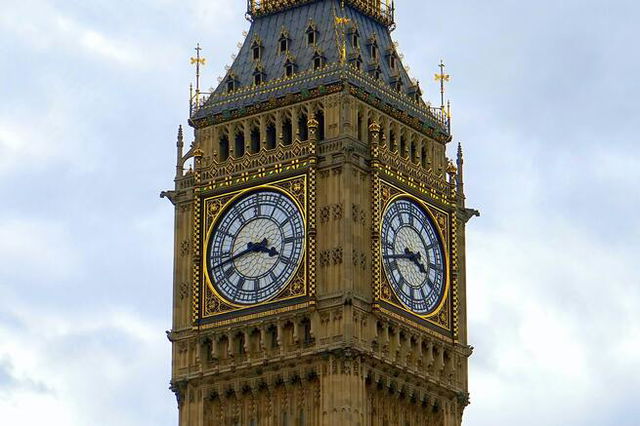In 2026, the clocks will go forward on March 29 at 1 a.m. and back on October 25.
British Summer Time (BST) begins on the last Sunday of March and ends on the last Sunday of October, meaning it lasts for most of the year.
Many countries use similar systems, for example in America it is referred to as Daylight Saving Time and is slightly longer since it begins on the second Sunday of March and ends on the first Sunday of November.
The phrase Spring forward, Fall back probably rings a bell for many across the world. Taught to us at school, it is a very helpful mnemonic to help us remember which way to adjust the clocks.
The History of British Summer Time
Early Attempts
The first attempt to introduce a change to how we kept time in summer was in 1908 when the Daylight Saving Bill was debated in the house of commons. Winston Churchill said of it at the time “I have read the Report of this Committee with much interest and with a lively recognition of the advantages which the Bill in question appears at first sight to offer to all classes, and especially to the working classes”.
There was a lot of interest in adopting the bill, however, some people showed concern over how it would affect businesses, especially the Stock Exchange. The bill ultimately failed, but a political interest in adopting Daylight Saving Time remained.
Part of the War Effort
British Summer Time was first piloted in a 1916 piece of Legislation called The Summer Time Bill. Britain was not the first country in Europe to introduce a seasonal clock change, Germany had done so a few weeks earlier. Many countries did the same, following Germany and Britain's example.
At one end we treat the hours of daylight as if the sun had not risen; at the other we spend millions upon artificial light which, because it is artificial, is inferior to and is obviously much more extravagant than sunlight, which costs us nothing (Marquess of Lansdowne)
Arguments made supporting the act included suggestions that it would boost the economy (by reducing the reliance on electricity and coal), and that it would give society more sunlight which would boost morale.
During the reading of the bill in Parliament, it was made clear that the measure was intended to be temporary. To be renewed annually only while the First World War carried on, to help the army divert resources such as coal to the war effort.
Beyond The War
The temporary measures proved to be not so temporary! In 1925 the Summer Time Bill was debated again by Parliament, but this time the debate was over whether the changes should be permanent or not. The bill was approved with a large majority and with a few exceptions has mostly remained the same ever since.
The best I can do is to introduce and make permanent legislation which we already have, so that we can enjoy the summer weather to the full, and so that we can obtain that improved health and increased happiness which all the authorities assure us is the practical result of recreation and exercise in the fresh air and in the sunshine.
Summer Oddities
Whilst the annual clock changes have largely remained unchanged since 1925 there have been some exceptions:
During World War II, the UK introduced Double Summer Time to save fuel and help people follow blackout rules. In 1941, the clocks stayed an hour ahead in winter and moved two hours ahead in summer (GMT +2). The UK returned to British Summer Time (BST) in 1947.
From 1968 to 1971, the UK experimented with British Standard Time (BST+1 all year round) to see if it reduced road accidents. The results were unclear, so the country returned to regular BST.
A 2010/11 report suggested keeping BST year-round could cut 500,000 tonnes of CO₂, save 100 lives annually, and reduce costs by £138 million. However, the proposal was dropped before reaching the House of Lords.
Changing Big Ben

Maybe one of the most famous clock towers in the world, Elizabeth Tower, home to the bell Big Ben, is also changed twice a year when the clocks go back and forward.
With four faces, each hour hand weighing three hundred kilograms, and each minute hand weighing one hundred kilograms, this is no easy feat!:
- When the clocks change, it takes five hours to adjust Elizabeth Tower ('Big Ben'), during which it remains silent from 9 pm to 2 am.
- The clock face lights are switched off while a team of five mechanics carefully moves the hands into their new positions. Once the lights are back on and the clock chimes, the adjustment is complete.
- This team is also responsible for changing the time on over 2,000 clocks in the Houses of Parliament.
Double check!
Whilst technology has many advantages one of the concerns people have when they wake up on Sunday morning after the clocks have changed is 'how do I know they actually changed?'.
In some ways changing the clocks manually gave a bit of reassurance that the change was actually happening.
The best thing to do that morning? Double-check the time online or text a friend to make sure your phone/watch or computer is not going to mislead you all day.










